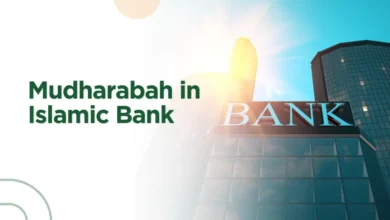Islamic Economics
-

Ethics of Profit-Sharing Negotiations in Islam
In Islam, profit sharing negotiations are never solely focused on results. It has to do with reaching a consensus with full agreement from each party. Our Ethics, character and intention are all reflected in the process itself, in the way we conduct ourself in the negotiation, in the way we value our business partner and their effort in profit percentage,…
Read More » -

Mudharabah in Islamic Bank
Mudharabah is a key concept in the Islamic business and economic system. This contract serves as a foundation for financing and fundraising instruments in the Islamic financial industry. Based on profit-sharing based on business performance, the Mudharabah contract is considered fairer and more equitable than conventional interest-based lending systems, which burden business managers in the event of adverse events. This…
Read More » -

How to Attract Investors in Crowdfunding
Crowdfunding has become a popular alternative method of raising capital for projects and businesses. In recent years, Islamic Securities Crowdfunding (SCF) has emerged as an attractive option for entrepreneurs and investors who prioritise sharia principles in doing business. However, attracting investors’ attention to Islamic SCF requires the right strategy and a deep understanding of what their concerns are. This article…
Read More » -

Differences Between Sharia Securities Crowdfunding and Sharia Peer-to-Peer Lending
In recent years, the development of financial technology (fintech) in Indonesia has significantly impacted the access to capital for Micro, Small, and Medium Enterprises (MSMEs). Two popular fintech innovations in the context of sharia financing are Sharia Securities Crowdfunding (SCF) and Sharia Peer-to-Peer (P2P) Lending. Both offer different solutions for MSMEs to obtain funds in accordance with sharia principles. Definitions…
Read More » -

Islam Allows Wife to Work Not as an Obligation
Talking about wife working in Islam often makes you confused, doesn’t it? The problem is, in the real world we encounter two extreme camps. On the one hand, the modern world (especially Western civilization) seems to be mocking us. They say that productive women are those who have careers, hold positions, and earn their own salaries. The identity of a…
Read More » -

Does the High Cost of Living Force More, Should Wife Work?
Have you ever felt breathless watching your monthly expenses rise? It feels like the high cost of living is getting more and more suffocating. It feels like your salary is just passing through. Husbands are stressed, wives are anxious. Many husbands are starting to worry. Many wives are becoming anxious, even “forced” to step in to earn extra income. And…
Read More » -

When Husband Doesn’t Provide, Is The Wife Allowed to be Working Wife?
Lately, we’ve been hearing more and more complaints about income. “My wife has to work,” or “My husband doesn’t earn enough.” And since who knows when, conditions like this have been considered normal. Nowadays, there’s a term called “split the bills,” where the husband pays the house installments, while the wife covers the electricity and the children’s school fees. Women…
Read More » -

How to View Loss Sharing in a Mudharabah Contract from the Income Statement
Mudharabah is a form of business cooperation in Islamic finance where one party provides capital (shahibul maal) and the other provides expertise and labor (mudharib). It is important for both parties to understand how losses are shared in this contract, especially through the analysis of the income statement. A good understanding of loss distribution helps maintain trust and harmonious cooperation…
Read More » -

Jobs for Muslim Women
Today, the question of appropriate jobs for muslim women is about how to develop a job without losing her value or dignity. Islam establishes moral boundaries so that every professional action from muslim women is an act of worship and contributions to society. As stated by Allah ﷻ: مَنْ عَمِلَ صَالِحًا مِّن ذَكَرٍ أَوْ أُنثَىٰ وَهُوَ مُؤْمِنٌ فَلَنُحْيِيَنَّهُ حَيَاةً طَيِّبَةً“Whoever…
Read More » -

A Profitable Business, But Declining Faith? How Come?
Sometimes we wonder why some people’s businesses are so successful, yet their faces still look anxious. They change cars every year, but they never sleep well. Money flows freely, but their hearts are dry. In today’s business world, “steady profits” is often the benchmark for success. However, there’s another aspect that often slips through our fingers without us realizing it:…
Read More »

